From 3rd Grade to Music Major: How the Violin Transformed a Life Path
I remember the day Alondra came in my classroom to sign up for violin lessons.
She was a second grader about to start third grade, and while I’d seen many students excited to join our strings program over the years, Alondra carried something different. She had watched her cousins come through Ubuntu Music Project—the foundation that would later become StringRise—and it was clear she was meant to be a violinist.
Alondra, 3rd grade.
Pictured with her violin after playing only a few months.
Alondra was a natural from day 1. She immediately took to the violin- position, posture, and sound production all came effortlessly for her.
During her three years in our program, it became clear that while the violin came naturally to Alondra, other parts of school did not. She was diagnosed with significant dyslexia, which presented real challenges in her academic work. For many students, that might have closed doors—but in our program, it was never a barrier. Alondra’s musicianship continued to grow, and by fifth grade, she was ready to audition for the orchestra and mariachi magnet program at Greiner Middle School. But when she submitted her forms, she was told her reading scores weren’t high enough to qualify. The school counselor and I knew something wasn’t right. We dug deeper and discovered that the academic accommodations she was entitled to hadn’t been provided. We reached out to the principal and advocated for her to be heard—not just on paper, but in sound. They agreed to let her audition, and of course, she was admitted.
Her violin didn’t just make music—it opened doors in a system that might otherwise have left her behind.
After three years thriving at Greiner’s Magnet Arts program, Alondra found herself without a high school orchestra to continue in. Around that same time, her father died in a tragic accident. Her mother called me, and I’ll never forget what she said: “The only thing that’s going to get her through this is the violin.” She needed to play again.
I put out a call, and the community answered. A Juilliard-trained violinist stepped in and offered to give Alondra private lessons, preparing her for an audition for the Dallas Symphony’s Young Strings program. This program would open the door to weekly instruction with a DSO violinist and keep her connected to high-level music education at a time when she needed it most.
Alondra with Sho-Mei her Senior Year with her new Scott Albert Violin.
For the next three years, Alondra studied under Sho-Mei Pelletier, Associate Principal Violinist with the Dallas Symphony Orchestra. Sho-mei poured her heart into Alondra, offering not just technical training but mentorship, consistency, and belief. Under her guidance, Alondra grew rapidly—her playing matured, her confidence deepened, and she began to see herself not just as a student, but as a violinist with a future. That time of steady, high-level instruction helped prepare her for what would come next.
Just a few months shy of high school graduation, Alondra and I reconnected. I asked her what she was thinking about for the future, and she told me she wanted to pursue music. We talked about music education as a potential path—a way not only to continue growing as a violinist, but also to give back, to lead, and to build a future rooted in her love for the instrument.
I reached out to my friend and colleague Dr. Elizabeth Chappell at Texas Tech University, a professor known for her love and dedication to mentoring and experience supporting students. I told her about Alondra—her talent, her story, and her heart—and asked if she might be willing to meet her. I knew this could be a powerful match, and that Alondra would thrive under Dr. Chappell’s guidance.
Alondra with Dr. Chappell and her Mom
Auditioning day at Texas Tech with her new Scott Albert Violin
Before her audition, Alondra was still playing on the same violin she had used since fifth grade. It had carried her far, but it simply wasn’t the level of instrument she needed to pursue music at the collegiate level. So I put out another call on social media. Within hours, people began reaching out, wanting to help.
One of those people was Scott Albert, a local luthier, who offered to donate a violin. Not just any violin—but a beautiful, professional-quality instrument that would allow Alondra to audition and enter college on equal footing. That moment changed everything. The sound opened up under her hands, and for the first time, the instrument matched the depth of her musicianship. It wasn’t just a gift—it was an invitation into the next chapter of her life.
Alondra and Nicole Melrose (CEO, StringRise) reunited in December 2024.
After a long and courageous journey, Alondra was admitted to Texas Tech University as a music education major—with a full scholarship covering her tuition. As her first teacher, it’s hard to put into words what it means to witness this moment. I’ve always seen potential in every student I teach, but seeing that potential grow, survive, and shine over so many years—it’s a rare and sacred gift.
Alondra still needs support for housing and food costs as she begins this next chapter. If you’d like to contribute to her journey, please reach out to me directly at nicole@stringrise.com. Your support could make all the difference.
Written by Nicole Melrose, Founder and CEO of StringRise




